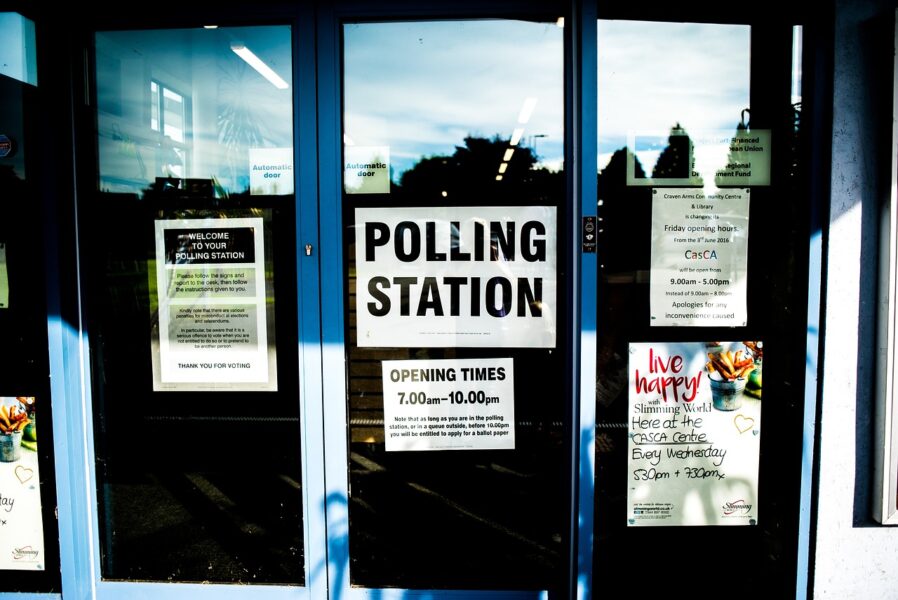
Be in no doubt: the Conservatives intend to win this election. Judging by Rishi Sunak’s performance in his first debate with Keir Starmer, he thinks he has everything to gain. That may seem fanciful in light of the polls: as of 8 June, Labour averaged 44 per cent to the Conservatives’ 22 per cent.
Moreover, there is no clear way to close that gap. The Tories find themselves in a trap. Any move they make will lose them voters. Over the last few decades, a divide has emerged between (to generalise heavily) socially conservative working-class people, and socially liberal middle-class people. Again generalising, the former group supported Brexit, while the latter opposed it. In 2019, with Brexit the dominant issue and the Conservatives successfully presenting themselves as the only party capable of resolving it, swathes of the working class switched from Labour to the Conservatives.
This time, many of those converts will go back to Labour. Others will support Reform UK, Nigel Farage’s right-wing party. To minimise the latter exodus, the Conservatives are pitching to a socially conservative, generally older demographic. You don’t need to be a cynic to suspect that the national service proposal is designed with that in mind. Similarly, the government’s plan to deport immigrants to Rwanda separates them from Labour on the ever-controversial issue of immigration. In light of the above, Sunak’s heavily criticised decision to leave D-Day commemorations early looks particularly unwise.
Similarly, the government’s plan to deport immigrants to Rwanda separates them from Labour on the ever-controversial issue of immigration.
Reform’s danger isn’t that it will win many seats. The UK’s electoral system, where a single representative is elected for each geographical area, rewards parties with concentrated rather than thinly spread support. Farage’s UKIP received 12.6 per cent of the vote in 2015, but won exactly one seat in Parliament. As of 8 June, Reform averaged 13 per cent in the polls, suggesting it will suffer a similar fate.
But Reform might rob the Conservatives of crucial votes in tight contests. Eight out of ten of those who say they will vote for Reform voted Tory in 2019. True, the unusual circumstances of that election mean it is not certain that all of those eight would have voted Conservative this time, if not for Reform. Still, it does seem to be the Conservatives, not Labour, that Reform threatens.
Targeting potential Reform defectors, however, will make the Conservatives even less appealing to socially liberal voters. In 2019, Jeremy Corbyn’s Labour was (by post-Thatcher standards) pretty far to the left. That may have dissuaded many middle-class voters from supporting them, despite those voters’ distaste for the Tories’ social conservatism. This time, Labour has spent four years taking pains to present itself as business-friendly.
The Tories are doing their best regardless to paint Labour as the party of taxation. During his first debate with Starmer, Sunak repeatedly (and questionably) claimed that Labour’s spending plans would require them to saddle every working household with a £2000 tax rise. While we won’t know the Tories’ own immediate tax plans until they publish their manifesto, their long-term goal, as always, will be to lower taxes.
While we won’t know the Tories’ own immediate tax plans until they publish their manifesto, their long-term goal, as always, will be to lower taxes.
Really, a lot of voters will begrudgingly vote for whichever party they think will actually get stuff done. The Conservatives’ problem here is that they have been in power for fourteen years. Why, one might ask, should they be trusted to address problems that either arose or were not solved on their watch? Last year, Sunak made five pledges: to halve inflation, grow the economy, reduce forecasted debt in five years’ time, cut NHS waiting lists, and stop the boats carrying immigrants across the Channel. Inflation has indeed been halved, but progress towards the other targets is unknown, debatable or minimal. Unsurprisingly, the Conservatives are not trumpeting their record in government, instead focusing attention on the future. It helps that Labour haven’t been able to communicate an inspiring vision of their own. If the Conservatives make their case well, this election could be a closer thing than the polls suggest – even if a Labour win still looks highly likely.


